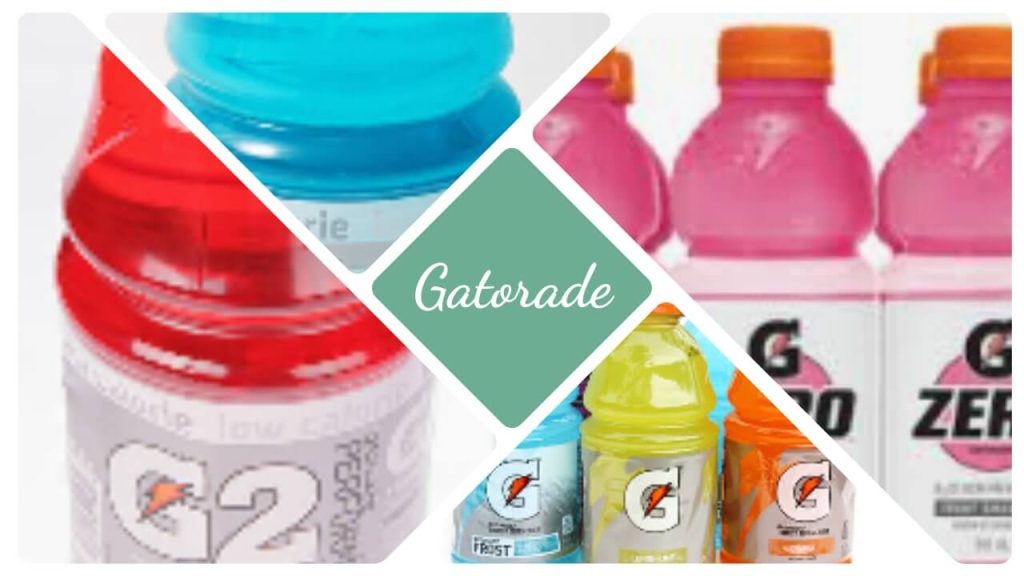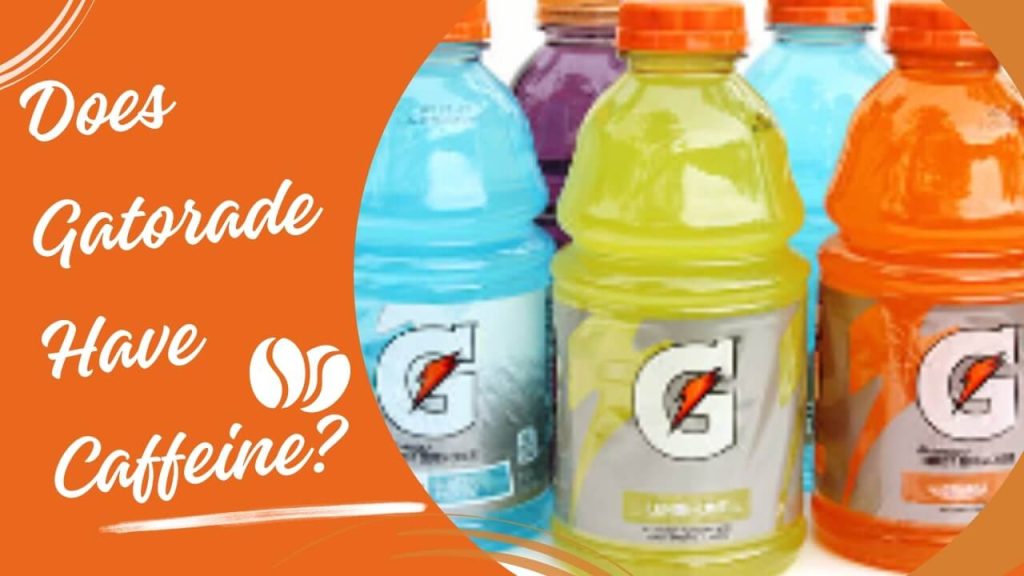Contents
- 1 Does Gatorade Have Caffeine? Discover Now!
- 1.1 What is Gatorade?
- 1.2 What Does Gatorade Contain?
- 1.3 Flavors Of Gatorade Available:
- 1.4 Different Sizes Of Gatorade:
- 1.5 Nutritional Of Gatorade
- 1.6 Benefits of Drinking Gatorade!
- 1.7 Does Gatorade Have Caffeine?
- 1.8 How is Gatorade different from other drinks? Simple explain!
- 1.9 Is Gatorade Good for Your Body? Facts You Should Know!
- 1.10 What are the Risks of Drinking Too Much Gatorade? You should Remember.
- 1.11 Does Gatorade have a lot of sugar? Quick Answer!
- 1.12 Does Gatorade keep you awake?
- 1.13 How Much Gatorade Should You Drink Each Day?
- 1.14 When Is The Best Time To Drink Gatorade?
- 1.15 How can I keep my Gatorade Drinks Fresh and Tasty?
- 1.16 What Is The Best Way To Freeze Gatorade?
- 1.17 Are there any alternatives to Gatorade?
- 1.18 FAQ: Does Gatorade Have Caffeine?
- 1.18.1 Q: What are the side effects of drinking too much Gatorade?
- 1.18.2 Q: Is Gatorade vegan?
- 1.18.3 Q: Is Gatorade gluten-free?
- 1.18.4 Q: Is Gatorade good for hydration?
- 1.18.5 Q: Does Gatorade Have Electrolytes?
- 1.18.6 Q: Does Cool Blue Gatorade have caffeine?
- 1.18.7 Q: How many calories are in a bottle of Gatorade?
- 1.18.8 Q: Is Gatorade good for diabetes
- 1.18.9 Q: Can Gatorade be used to hydrate after a workout?
- 1.18.10 Q: Can I drink Gatorade while pregnant or breastfeeding?
- 1.18.11 Q: Is Gatorade bad for your teeth?
- 1.18.12 Q: Is there any difference between regular Gatorade and low-calorie Gatorade?
- 1.18.13 Q: Can I freeze Gatorade?
- 1.18.14 Q: Is Gatorade good for weight loss?
- 1.18.15 Q: Does Gatorade help with muscle cramps?
- 1.19 Conclusion Of Does Gatorade Have Caffeine?
- 1.20 Related posts:
- 2 Top 15 Keto Snacks for Christmas You'll Absolutely Love
- 3 How Long Does Espresso Last? Expert Storage Tips
- 4 How to Make Coffee Yogurt: A Comprehensive Guide
- 5 How Much Caffeine in Coffee? Your Ultimate Guide
Does Gatorade Have Caffeine? Discover Now!
As an athlete, your body’s energy needs are likely intense. Whether you’re playing a sport, hiking, or just looking for the right “pick-me-up” before you start your day – finding that extra energy boost can be key. With so many different types of energy drinks on the market, deciding the best option can take time.
One popular choice has been Gatorade but – Does Gatorade Have Caffeine? As we’ll discuss further in this blog post, not all varieties contain caffeine – and if they do, there tends only to be low quantities involved. So let’s dive in deeper to learn more about what goes into each flavor of Gatorade and how much caffeine is present within them!
What is Gatorade?

Gatorade, the renowned sports drink, was meticulously formulated by researchers at the esteemed University of Florida back in 1965. Originally created to combat dehydration in the scorching heat of football games, this beverage rapidly gained recognition and is now accessible to athletes across all proficiency levels.
What Does Gatorade Contain?
Gatorade is composed of carbohydrates, electrolytes, and water. The exact formulation varies depending on the flavor and type of drink, but most include a combination of glucose (sugar) and fructose (fruit sugar) as the primary sources of carbohydrates.
In addition to these simple sugars, some varieties also contain artificial sweeteners such as sucralose or maltodextrin for additional sweetness.
As for electrolytes, Gatorade contains sodium chloride (table salt), potassium chloride, calcium chloride, magnesium sulfate, and phosphates – all commonly used to help rehydrate athletes during intense exercise.
Lastly, water makes up the bulk of each bottle or can so athletes can stay hydrated without consuming excessive sugar.
Flavors Of Gatorade Available:
Gatorade has progressively expanded its flavor range throughout the years, offering more than 20 tantalizing options for consumers to relish. Here is an enticing list of some Gatorade flavors that you can savor:
- Lemon-Lime: One of the most popular Gatorade flavors, Lemon-Lime is a light and refreshing citrus flavor perfect for athletes looking to stay hydrated during workouts.
- Fruit Punch: Fruit Punch is a classic Gatorade flavor that has existed since the 1980s. It has a sweet and tart flavor that will please even the pickiest of athletes.
- Orange: Another classic Gatorade flavor, Orange has been around since 1985 and is still one of today’s most popular flavors. It has a sweet and tangy taste that will keep you going during your workouts.
- Glacier Freeze: Glacier Freeze is a newer Gatorade flavor with an icy blue color and a cool, refreshing taste that will help you beat the heat during your workouts.
- Riptide Rush: Riptide Rush is another newer Gatorade flavor with an electric blue color and a tropical fruit punch taste that will give you an extra boost of energy when you need it most.
- Strawberry Watermelon Splash: Strawberry Watermelon Splash combines two classic summertime flavors into one delicious drink that’s perfect for athletes looking to stay refreshed during their workouts.
- Grape: Grape was introduced in 1992 and remains one of the most popular Gatorade flavors today, thanks to its sweet grape taste that’s sure to please any athlete’s palate.
- Cool Blue Raspberry: Cool Blue Raspberry combines two classic summertime flavors into one delicious drink that’s perfect for athletes looking to stay refreshed during their workouts while also getting an extra boost of energy from the caffeine in each bottle or canister of Gatorade Cool Blue Raspberry!
- Fierce Grape: Fierce Grape is another newer Gatorade flavor with an intense purple color and a bold grape taste that will help you power through your toughest workouts without running out of steam!
- Mango-Passionfruit: Mango-Passionfruit brings together two exotic fruits for a unique tropical flavor combination.
- Tropical Fruit Punch: Tropical Fruit Punch combines three classic tropical fruits (pineapple, mango, and guava) for a delicious blend of sweetness and tartness, perfect for any athlete who needs an extra boost of energy during their workout!
- Pineapple Coconut: Pineapple Coconut brings together two classic tropical flavors in one delicious drink, perfect for athletes looking to stay refreshed while also getting an extra boost of energy from the caffeine in each bottle or canister of Gatorade Pineapple Coconut!
- Arctic Blitz: Arctic Blitz is another newer Gatorade flavor with an icy blue color and a cool minty taste that will help you beat the heat during your workouts while also getting an extra boost of energy from the caffeine in each bottle or canister of Arctic Blitz!
Different Sizes Of Gatorade:
Gatorade, the iconic sports drink that has been fueling athletes for decades, comes in various sizes to fit every lifestyle and need. Whether you are looking for a quick burst of electrolytes on the go or a larger size for a team event, Gatorade has you covered.
With sizes ranging from 12 ounces to 128 ounces, there is a perfect Gatorade size for every situation. The smaller sizes are perfect for a single person, while the larger sizes are ideal for team events or a long day of physical activity.
Nutritional Of Gatorade
With just 140 calories per 12 fl oz serving, Gatorade is a guilt-free choice.
But that’s not all – Gatorade is also fat-free and packed with essential nutrients. Each serving contains 34g of carbohydrates to sustain your active lifestyle. Plus, it delivers a balanced dose of sodium (110mg) and potassium (30mg) to help keep your electrolyte levels in check.
But the benefits continue beyond there. Gatorade also contains valuable minerals like magnesium, zinc, and selenium, ensuring you’re getting more from your hydration.
Quench your thirst and replenish your body with Gatorade – the ultimate hydrating drink for athletes and active individuals.
Benefits of Drinking Gatorade!
Gatorade, a popular sports drink, is known for its bright colors and commercial endorsements. But beyond the marketing hype, there are numerous benefits to drinking Gatorade. Gatorade is designed to help replace the electrolytes lost during exercise, which is essential to keeping your body functioning correctly.
Additionally, Gatorade can help prevent dehydration, leading to various health issues. And for athletes, Gatorade can help improve endurance and athletic performance by delivering essential carbohydrates and nutrients to fuel the body during intense physical activity.
Ultimately, Gatorade is an essential part of any active lifestyle, helping to keep your body healthy and functioning at its best.
Does Gatorade Have Caffeine?

Gatorade is a popular sports drink known for its ability to replenish and hydrate athletes after a workout or game. But does it contain caffeine? While Gatorade does contain some stimulants like vitamins and minerals, it does not contain any caffeine. This is good news for those who may be sensitive to caffeine or want to avoid it altogether.
Instead, Gatorade is packed with electrolytes like sodium and potassium, which help keep your body hydrated and balanced. Whether you’re a professional athlete or simply looking for a refreshing way to stay hydrated, Gatorade can certainly do the job without caffeine.
However, some specialized “energy” drinks like Gatorade X-Factor and Zero Sugar with Caffeine include small amounts of the stimulant in their ingredients lists – typically around 40mg per 8oz serving.
How is Gatorade different from other drinks? Simple explain!
Gatorade is different from other energy drinks in several ways. First, it contains no added caffeine and instead relies on its blend of carbohydrates and electrolytes to provide athletes with the energy they need during exercise or competition. This means it is a much healthier alternative for those looking for an energy boost without excessive sugar or stimulants.
In addition, Gatorade also contains essential vitamins and minerals like calcium, magnesium, and potassium, which can help boost performance while aiding in proper hydration.
Finally, Gatorade has been specifically designed for athletes – meaning it’s especially beneficial for those who are active and engaging in strenuous activities.
Is Gatorade Good for Your Body? Facts You Should Know!
Gatorade can be an excellent choice for athletes who need to maintain good hydration and energy levels. It contains carbohydrates, electrolytes, and water – which all help to replenish and energize your body during exercise or competition. Plus, its essential vitamins and minerals provide additional nutritional benefits.
However, it is essential to remember that Gatorade contains sugar, so it should not be used as a replacement for water to stay properly hydrated.
Instead, use it as an occasional pick-me-up when looking for an extra boost of energy before a game or workout – check the label first to ensure no caffeine is involved!
What are the Risks of Drinking Too Much Gatorade? You should Remember.
Consuming too much Gatorade can have some potentially dangerous consequences. For starters, as mentioned above, it does contain sugar – so overconsumption can lead to an unhealthy spike in blood sugar levels and possibly weight gain.
In addition, drinking large amounts of Gatorade could potentially lead to dehydration if other sources of water are not consumed alongside it.
Lastly, the sodium content in Gatorade might cause issues such as high blood pressure for those who already suffer from hypertension.
Does Gatorade have a lot of sugar? Quick Answer!
The amount of sugar in Gatorade depends on the variety – some have more sugar than others. On average, there are approximately 36 grams of sugar per 20-ounce serving.
For those looking for a low-sugar alternative, Gatorade Zero Sugar is available with 0 grams of added sugar and the same electrolyte blend as the original drink. However, it does contain artificial sweeteners such as sucralose or maltodextrin instead.
In comparison to other energy drinks, Gatorade generally has less sugar than many competitors but still contains enough to provide athletes with quick energy during intense activity.
Does Gatorade keep you awake?
Gatorade does not contain caffeine and, therefore, will not keep you awake. The electrolytes and carbohydrates in Gatorade can help replenish fluids and energy during exercise, but it should not be used as a substitute for sleep.
How Much Gatorade Should You Drink Each Day?
The amount of Gatorade you should drink each day depends on your activity level. If you are an athlete or engage in strenuous activities, staying hydrated and replenishing electrolytes is important. Drinking 8-16 ounces of Gatorade per hour during exercise can help maintain energy and hydration levels.
If you are not actively exercising, there is no need to consume Gatorade beyond basic water intake – it contains sugar and other ingredients that may be unnecessary for non-athletes.
In short, the best way to determine how much Gatorade you should drink is to gauge your individual needs based on your lifestyle and activity level.
It’s also important to remember that Gatorade should be consumed alongside other healthy options like water, fruits, and vegetables – it should never replace these more nutritious choices.
And the best way to stay hydrated and energized is by consuming a balanced diet with plenty of fluids throughout the day. With this approach, you can enjoy all of the benefits of Gatorade without worrying about overconsumption or potential negative side effects.
When Is The Best Time To Drink Gatorade?
The best time to drink Gatorade is before, during, and after exercise or strenuous activity. Drinking Gatorade can help replenish electrolytes lost through sweat and keep energy levels up during intense physical activity.
It’s also important to stay hydrated throughout the day – so drinking small amounts of Gatorade on an empty stomach at regular intervals as part of a balanced diet can be beneficial.
How can I keep my Gatorade Drinks Fresh and Tasty?
Gatorade can be kept fresh and tasty by storing it in a cool, dry place at room temperature. To keep the drink flavorful, consuming it within 3-5 days of opening is best.
Also, if you plan on drinking only some of your Gatorade immediately, consider freezing it into individual servings. You can then thaw each serving as needed for up to 2 months.
Avoid exposing Gatorade to extreme temperatures or direct sunlight, as this may speed up spoilage and reduce its flavor.
Following these steps, you can keep your Gatorade drinks fresh, tasty, and ready to enjoy when needed!
What Is The Best Way To Freeze Gatorade?
Freezing Gatorade can be a brilliant solution to always have a chilled and invigorating drink within reach. However, taking the right precautions to avoid any unexpected mishaps is crucial.
For optimal freezing, pour your Gatorade into an airtight, freezer-safe container, leaving a little space at the top to accommodate expansion during freezing. As a cautionary measure, refrain from using glass containers, as the contents may expand and shatter the container.
Once frozen, patiently allow the Gatorade to thaw completely before popping the container open, ensuring no spills or splatters. Embracing these straightforward steps will guarantee that your frozen Gatorade remains both safeguarded and tantalizingly delicious, ready for you to savor at any moment.
Are there any alternatives to Gatorade?
For those looking for an alternative to Gatorade, coconut water is a great choice. Coconut water contains electrolytes and is a natural source of hydration. It also has less sugar than Gatorade and is free from artificial additives and preservatives.
Another option is sports drinks with all-natural ingredients such as fruit juice, honey, or stevia. These beverages often contain less sugar than Gatorade and are free from artificial colors, flavors, and sweeteners.
In addition, you can always opt for water as your go-to beverage. Not only is it calorie-free and nutrient-dense, but it also helps promote good health and hydration in a much more natural way.
FAQ: Does Gatorade Have Caffeine?
Q: What are the side effects of drinking too much Gatorade?
A: Overconsumption of Gatorade can lead to potential health issues, such as gastrointestinal distress, hyperglycemia (high blood sugar), and electrolyte imbalances.
Q: Is Gatorade vegan?
A: Yes, Gatorade products are vegan-friendly when the original variety is chosen. However, other flavors may contain animal-based ingredients, so it’s important to read labels carefully.
Q: Is Gatorade gluten-free?
A: Yes, most Gatorade products are gluten-free. However, it’s always best to double-check the product labels or contact the manufacturer for further details.
Q: Is Gatorade good for hydration?
A: Yes, Gatorade is an effective source of hydration as it contains electrolytes that help replace what you lose when sweating due to exercise or heat.
Q: Does Gatorade Have Electrolytes?
A: Yes, Gatorade contains electrolytes such as sodium and potassium that help replace electrolytes lost during intense physical activity. Some varieties of Gatorade contain more or fewer electrolytes, so it’s important to read the label carefully.
Q: Does Cool Blue Gatorade have caffeine?
A: No, Cool Blue Gatorade does not contain caffeine. However, other ingredients can help provide energy and hydration during exercise. The best way to determine how much Gatorade you should drink is to gauge your needs based on your lifestyle and activity level.
Q: How many calories are in a bottle of Gatorade?
A: The exact number of calories will vary depending on the variety and size of the bottle, but most 32-ounce bottles contain about 130-140 calories. It’s vital to double-check labels or contact the manufacturer for more specific information. It’s also important to remember that Gatorade should be consumed alongside other healthy options like water, fruits, and vegetables – it should never replace these more nutritious choices.
Q: Is Gatorade good for diabetes
A: As with any food or beverage, it is crucial to speak with your doctor or healthcare provider before consuming Gatorade if you have diabetes. While the electrolytes and carbohydrates in Gatorade can help provide energy during physical activity, most varieties contain high levels of sugar that could cause a spike in blood glucose levels.
Q: Can Gatorade be used to hydrate after a workout?
A: Yes, Gatorade can be an effective way to rehydrate and replenish electrolytes after a workout. The electrolytes and carbohydrates in Gatorade help provide energy while helping the body absorb fluids more quickly than plain water.
Q: Can I drink Gatorade while pregnant or breastfeeding?
A: For pregnant or breastfeeding women, checking with a healthcare provider before drinking Gatorade is always best. While the electrolytes in Gatorade may benefit hydration during physical activity, some varieties contain sugar and artificial ingredients that could be harmful if consumed in large amounts.
Q: Is Gatorade bad for your teeth?
A: Yes, Gatorade can cause tooth decay and erosion due to its high acidity and sugar content. Those who drink Gatorade frequently should take extra precautions to protect their teeth, such as brushing twice a day and flossing regularly.
So Drinking Gatorade through a straw or rinsing your mouth with water after consuming it can help reduce the risk of cavities.
Q: Is there any difference between regular Gatorade and low-calorie Gatorade?
A: Yes, regular Gatorade contains more sugar than low-calorie varieties. Low-calorie versions also have fewer calories, often ranging from 5-15 calories per 8 ounces compared to 50-70 in regular Gatorade.
Q: Can I freeze Gatorade?
A: Yes, you can freeze Gatorade to extend its shelf life – just make sure to leave room for expansion in the container. If you’re worried about drinking all of your Gatorade immediately, consider freezing it into individual servings for up to two months. You can also use Gatorade ice cubes to cool down your drink and add flavor instantly.
Q: Is Gatorade good for weight loss?
A: While drinking Gatorade can help replace electrolytes and carbohydrates lost during exercise, it should not be the only source of hydration or nutrition when trying to lose weight. To maximize weight loss goals, consider limiting your intake of sugary drinks and focus on consuming more nutritious foods like fruits, vegetables, and lean protein.
Q: Does Gatorade help with muscle cramps?
A: Gatorade can help with muscle cramps by providing electrolytes lost during exercise and carbohydrates that offer energy to help replenish tired muscles. Drinking Gatorade after a workout can help prevent dehydration and muscle cramps while providing an energy boost to help you recover faster.
Conclusion Of Does Gatorade Have Caffeine?
In conclusion, Gatorade does not contain any caffeine. It was invented to help athletes replace electrolytes lost during intense activity, and its main ingredients are water, carbohydrates, and electrolytes.
While Gatorade contains B vitamins to assist with energy production, these are not the same as caffeine and do not stimulate. Thus, while a sports drink can promote hydration and energy levels during exercise, Gatorade has no caffeine content or equivalent substitute that would make it an effective alternative for those seeking a caffeinated beverage.
Instead, turn to trusted sources of caffeine like coffee or tea when you need an energy boost. Share this post with your friends and family to tell them whether Gatorade has caffeine.
Related posts:

Hello, my name is Mary. I’m a passionate food and drink enthusiast, sharing flavorful recipes, creative drinks, and culinary inspiration from around the world. With a love for exploring new tastes and traditions, I bring a mix of easy-to-follow guides and expert tips to make every meal an adventure. Follow along for delicious discoveries and a toast to positive living!




